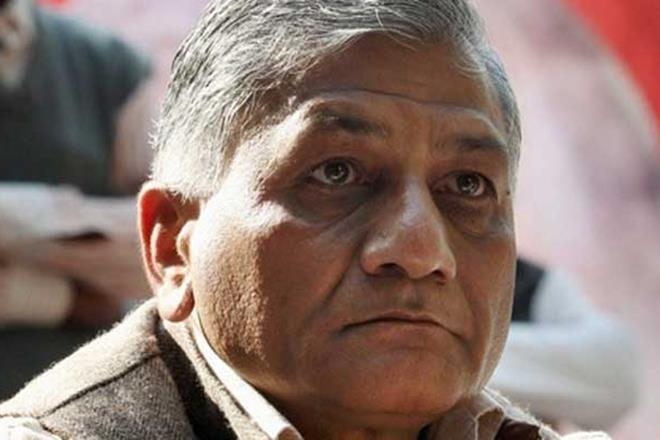DUBAI: Minister of State for External Affairs General V K Singh has defended the Rafale fighter aircraft deal, saying it is not the government but the company that makes the equipment which decides the partner to fulfil the offset obligations in the inter-governmental agreements.
Addressing the Indian community at the Indian consulate in Dubai on Saturday evening, General Singh said no noise should be made if the French aerospace major Dassault Aviation did not find the state-run aerospace major Hindustan Aeronautics Ltd (HAL) “useful enough”.
“The thing that gets paddled around is what happens to Hindustan Aeronautics Ltd (HAL). If I can say tongue-in-cheek, if Dessault didn’t find (HAL) useful enough, we shouldn’t make noise,” he said.
“It’s the company that is making equipment that decides whom to give the offset. So the decision is that of Dassault and for various things they have selected a number of companies, Anil Ambani is one of them,” he said.
Prime Minister Narendra Modi had announced the procurement of a batch of 36 Rafale jets after holding talks with then French President Hollande on April 10, 2015 in Paris. The final deal was sealed on September 23, 2016.
A controversy broke out when a French media report quoted Hollande as saying that the Indian government proposed Anil Ambani’s Reliance Defence as the partner for the French aerospace giant in the Rs 58,000 crore Rafale deal and France did not have a choice.
Hollande’s comments triggered a sharp reactions from the opposition parties which have been accusing the government of massive irregularities in the deal and benefiting Reliance Defence Ltd (RDL) despite not having any experience in the aerospace sector.
The Indian government has been maintaining it was not officially aware of whom the Dassault Aviation had selected as its Indian partner to fulfil offset obligations of the deal.
Dassault Aviation has said it had made the decision to partner with Reliance Defence Ltd for the Rafale deal.
The Congress has also been demanding answers from the government on why the HAL was not involved in the deal as finalised during the UPA.
Singh, a former Indian Army chief, defended the government’s decision, saying HAL was overburdened and has many things to do.
“Dassault may have negotiated with them. It is said that 95 per cent was already negotiated with them, so what happened to the 5 per cent. Why did it fall through?,” he asked.
“The basic price and the price at which it was negotiated for 126 aircraft by the UPA government and the basic price for a fly-away condition aircraft has a difference of 40 per cent cheaper by this government,” he said.
He said the secrecy clause comes in where the equipment was concerned.
“Avionics, radars and the type of weapon systems, the types of weapons delivery platforms, if you let it be known, the enemy would know what is to be done with them. That’s why it remains a secret,” Singh said.
“If the same thing was negotiated along with this 40 per cent drop in the basic price, you will find that the aircraft deal is far superior to what has been done,” he said.
Singh also said that those 126 aircraft had to be assembled here and were to come in a locked out kit.
“We are getting 36 in fly-away condition, which means they are coming in absolutely fitted with everything to take on the targets the moment they land in India,” he said.
Singh said the finalisation will only happen next year.
“So it is only a speculation as Dassault has to find out whether the company is capable or not,” he said.
Singh criticised the Opposition for its role.
“Unfortunately, after some time the smoke will go away because there is actually no fire,” said Singh. (AGENCIES)
Trending Now
E-Paper


